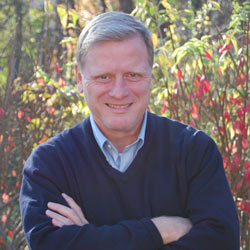April 3, 2020
Dear Drama Observers,
“What we most need in this moment of crisis,” said Stuart Stevens, longtime political strategist and childhood friend of mine when interviewed this week by PBS, “is a sense of agreed upon truth.”
Stuart went on to say,
“And just at this moment when we need to believe someone, to believe experts, we’ve had this assault upon what are facts. And I believe that’s incredibly dangerous. It’s what happens in totalitarian societies. It’s 1984. Who do you believe? We’re reaping this terrible sowing of mistrust among all of our institutions.”
My old friend had many good things to say in that interview that prompted several thoughts in me that I’ll share with you. Here are my ponderings, in no particular order, about truth in a pandemic:
–I’m fond of a quote from James A. Garfield, our twentieth president, who said, “The truth will set you free but first it will make you miserable.” Stepping onto scales will reveal how much you weigh, and you might not like the number you see. But knowing that number should motivate you to lose weight, thus improving your health. Staying abreast of the COVID-19 stats can be disheartening but the more information we have, the more likely we’ll be to take appropriate safety measures.
–Some people avoid looking at information that disconfirms their previously held beliefs. They aggregate their news sources to include only that information that confirms what they already believe—a phenomenon referred to as confirmation bias. Consequently, they think they’re well informed when, in reality, they’re operating in ignorance.
–We humans are naturally reductionistic. By that, I mean we’re prone to reduce complexity down to simplicity so we can get a better handle on it. A particularly pernicious form of reductionism is racism, for example, where people are seen, not as individuals, but as members of a stereotyped category. COVID-19 is similar to other viruses but not like all the others, so it’s less predictable and harder to know how to manage. In response to that ambiguity, some people reductionistically conclude that its merely a seasonal flu and all the hype is overblown. But they do so at their own peril and endanger lives—those of others and their own as well.
–Some people search for sinister motivations wherever they can find them. Their starting point assumption is, “Somebody’s out to get us,” and filter everything that happens through that assumption. COVID-19 is merely a plot concocted by somebody somewhere who’s up to no good, or so the thinking goes. So, the best way to not let those devious others “get away with it” is to ignore the hype and maintain the status quo. That assumption also puts people’s lives at risk.
–We’re living in a moment when truth is tribally determined. Many people only put stock in news which originates inside their tribal silo. Like driving a car while peering through a paper towel holder, it puts people at risk not to broaden the view. It’s become literally dangerous for allegiance to tribe to trump allegiance to truth.
–The era in which we live is often referred to as the information age. That moniker is valid because we have access to more information than at any time in human history. But information accessibility and wisdom are two different things. We can be chockablock with information and simultaneously foolish. Just ask those college students who disregarded what they knew, headed to the beach at Spring break, and now have the virus. They didn’t have information deficits; they had wisdom deficits.
–I keep seeing social media posts in which someone quotes statistics revealing the numbers of people who routinely die from a variety of causes (like car accidents) without generating all the media hoopla. They then piously suggest that our concerns need some “perspective.” Imagine if, on September 12, 2001, someone had compiled similar statistics (and they would’ve been similar) to give some perspective on the almost 3000 lives lost on 911. I understand the comparison but it’s neither relevant nor helpful. People who lose loved ones to this new and novel killer would gladly tell those folks what to do with their “perspective.”
–As Stuart said earlier, we need to place our trust in institutions while discerning who and what to believe. Believing everything you read or believing none of what you read are equally dangerous and equally lazy. Using discernment may be hard work but it’s the safest way to go.
So much for my random smattering of thoughts for this week and thanks to my old friend for stirring up my mental juices. By the way, Stuart grew up to become famous. I grew up to become someone who knows a famous person.
Till next week.



On point.
Thank you, Joanna!
Very helpful….as always. Thanks Alan.
Thanks, Denise. Good to hear from you.
Just reread this article. I so wish everyone would take it your advise to heart as we recover from the current unprecedented events. It is sad to see the “spin” on partial truths to serve an agenda, instead of serving the public to better understand and respond responsibly.
Thanks for challenging us to take a broad view of the situation and evaluate our motives as we interupt the “facts”, along with those in a position to info us.
Thanks, Micki. There is indeed much “spin on partial truths to serve an agenda.” That’s a very astute way to put it. I appreciate your taking time to provide the feedback.